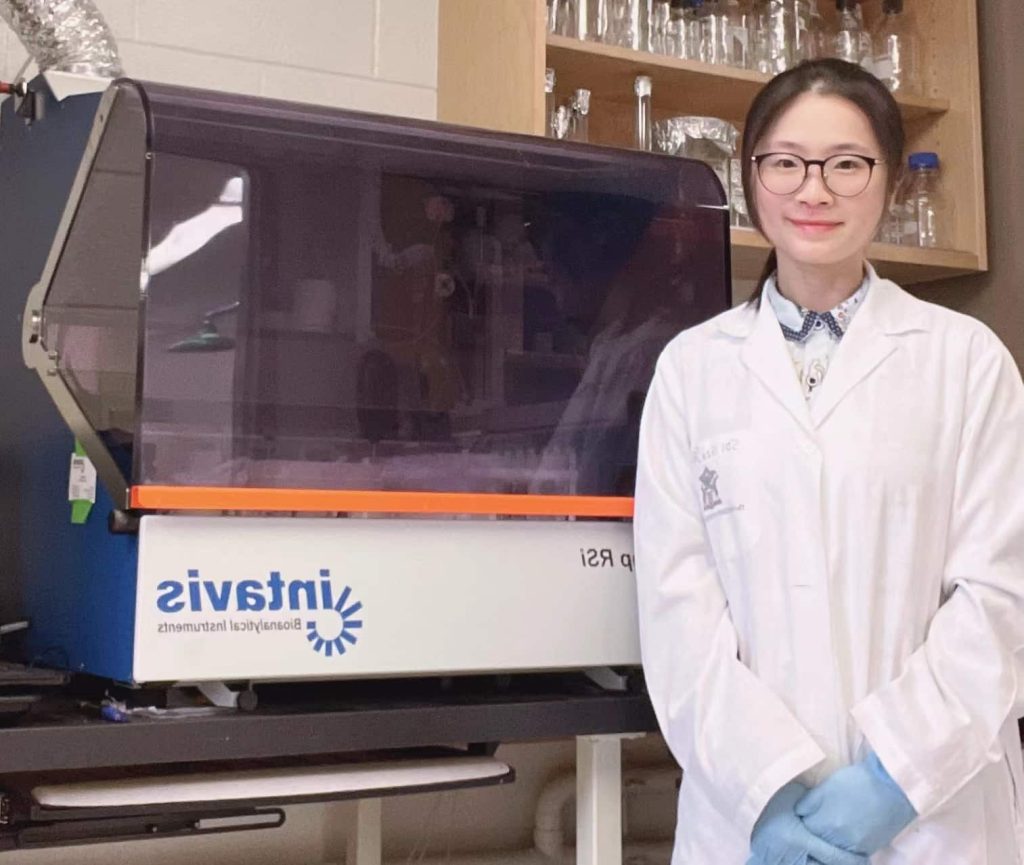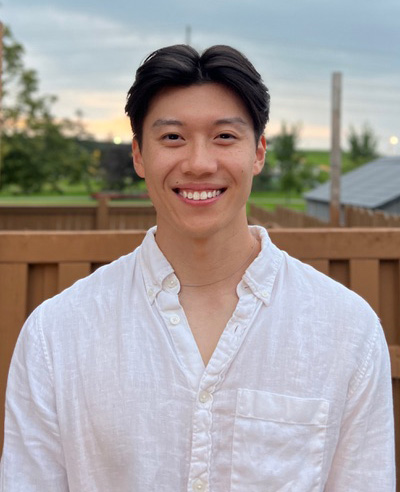- Please tell us a little bit about yourself (i.e. name, current degree program/department, supervisor/lab, previous education/experience etc.).
My name is Shanshan (Jenny) Zhong, and I am a Ph.D. candidate in the Department of Biochemistry at Western University, working under the supervision of Dr. Shawn Li. I completed my Master’s degree in Microbiology at Beijing University of Chemical Technology. I’m hoping that my current studies will help improve breast cancer treatment in the future.
- Why is the TBCRU Studentship Award important to you, and how does it advance your research?
The TBCRU studentship award means a lot to me. It not only financially supports my studies but also allows me to join a big scientific family full of excellent young breast cancer researchers. In addition, with this award, I can devote myself to research and have more opportunities to collaborate with other researchers.
- What is the objective of your research project and what problem(s) you hope to solve?
It is believed that immune cells in the body can stop the growth of a breast tumour. To avoid being killed by these immune cells, breast cancer cells use a protein called PD-L1 that helps the two cell type communicate or signal to each other. However, the way in which this signalling works is still is a mystery. My project aims to decrease this interaction by developing a new drug and evaluating its potential in treating breast cancer.
- In a few lines, please describe your research project.
My research project focuses on two main objectives. For the first objective, I am developing inhibitors targeting the breast cancer/immune cell interaction, which includes screening, optimizing and testing the feasibility of these inhibitors both in petri dishes and in animal models. For the second objective, I am using a sophisticated protein profiling technique called mass spectrometry to help unveil the secret behind the inhibitory signaling that breast cancer cells use to escape immune cells.
- Have there been any changes to or any advancements in your research since your project began?
To date, I have identified a series of new inhibitors that can effectively disrupt the interaction between breast cancer cells and immune cells, resulting in reduced breast cancer cell growth in both petri dishes in the lab and in animal models. At the same time, I am also making progress studying the protein involved in this use mass spectrometry.
- Have you had an opportunity to present (or publish) your research to your peers or the broader research community? Was it at a national or international meeting or in some other way?
During the past year, I presented my research to peer researchers in the Spring Symposium and the Biochemistry Graduate Seminar Series at Western University.
- If you received feedback following your presentation how has it helped you and your research?
I received some great, constructive feedback. My research relates to several areas, including immunology, chemistry, and biochemistry. The scientists from these different areas provided some great suggestions to help me improve my knowledge and provide me with more opportunities to develop my research.
- How will your research be applied in the clinic or in a real-world setting? How will patients benefit from the results of your work?
I am developing a new class of inhibitors that have demonstrated strong therapeutic potential in the lab. Hopefully, as work progresses these can translate to benefit breast cancer patients in the clinic, as well as allowing us to better understand the best ways to target the immune system in breast cancer.
- Tell us about your involvement in the Breast Cancer Society of Canada fundraising events (Dress for the Cause, Mother’s Day Walk).
I am always enthusiastic about participating the Dress for the Cause and the Mother’s Day Walk. This year, I joined the TBCRU Team for the Million Steps to Mother’s Day Challenge and spread my goal to my fellows, friends and family.
- What are your hobbies? What are you currently reading, watching or listening to outside of the lab?
I am a big fan of skiing, hiking, running and camping. I also enjoy reading and watching documentaries when I am not working in the lab.




